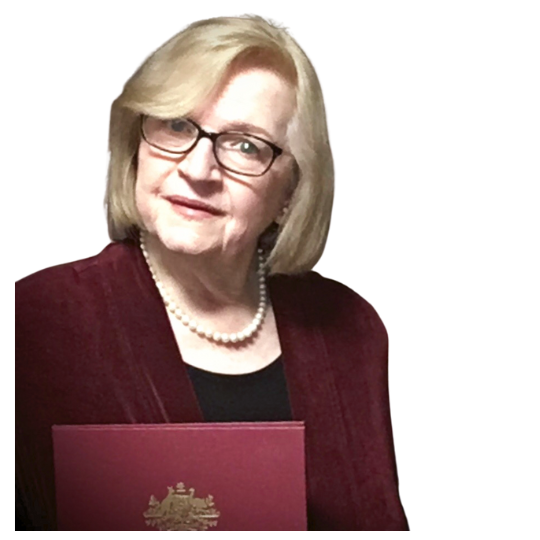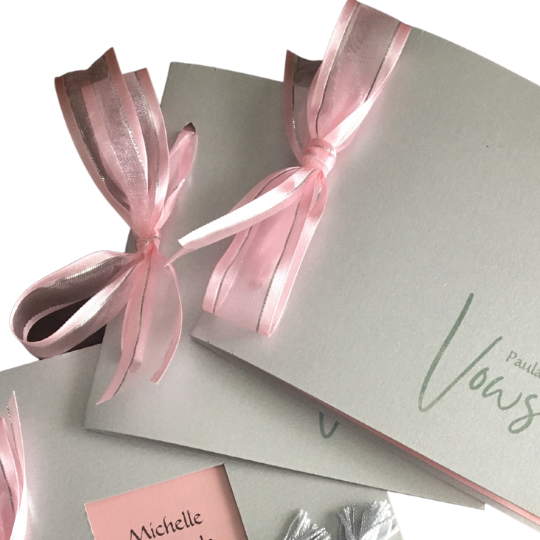What your celebrant says in your wedding - law and custom
/08
by Jennifer
Cram - Brisbane Marriage Celebrant © (12/11/2022
Categories: | Celebrant | Wedding Ceremony | Wedding Legals |
 What your celebrant must say in your
wedding ceremony is laid down in the Marriage Act.
And it is far less than most people think!
What your celebrant must say in your
wedding ceremony is laid down in the Marriage Act.
And it is far less than most people think!In fact there is only ONE thing that your celebrant must say.
The
Monitum
Add
The Marriage Act doesn't call it that, in fact
it doesn't name it at all, it just makes it clear
that, in order for your marriage to be legal, the
celebrant must say the following words (Monitum
means warning, by the way) before you make your
vows.I am duly authorised by law to solemnise marriages according to law.The first two sentences are a warning. The last one the legal definition of marriage in Australia.
Before you are joined together in marriage in my presence and in the presence of these witnesses, I am to remind you of the solemn and binding nature of the relationship into which you are now about to enter.
Marriage, according to law in Australia, is the union of two people, to the exclusion of all others, voluntarily entered into for life.
I don't just launch into the above. I always introduce it by explaining that, in order for your marriage to be legal, I must declare that I ... and I insert my name after the first I. Not a fan of starting the ceremony with My Name Is... but we are legally required to identify ourselves. Something I do twice. Once informally when I'm doing the housekeeping announcements before the ceremony starts, and as part of the Monitum.
What
about the vows?
Add
Do you have to repeat the legal vows
after your celebrant? No. Nope. Not at all.
In fact, as long as at some point before the vows your celebrant introduces themselves as the celebrant, job done. So you can read your vows, including the legal words, or have someone else lead you through them. Or more than one someones! At a recent wedding, on my suggestion, we had the couple's teenage godsons who were just a tad too young to be the witnesses, do that. It created a magic moment. And they did it perfectly. Holding the really fancy vows folders I had made for the couple.
Here's
the shocking secret ...
Add
Although it is customary for
the celebrant to do almost all the speaking of the
ceremony, that is tradition, a holdover from when
the celebrant was always a member of the clergy and
the "authority" marrying them in the eyes of the
church.As a civil celebrant, I am what I like to think of as the operational arm of the Marriage Act. But, technically, because it is the words you each say to the other, in front of witnesses, that create your marriage, you marry one another by saying one simple sentence:
I ask everyone here to
witness that I [Full Name] take you [Full Name]
to be my lawful wedded [your choice of:
Husband/Wife/Spouse/Partner-in-Marriage]
My job is to make sure the paperwork is done, make sure you say the proper words, and there are two witnesses present. And to submit everything to Births, Deaths, and Marriages to register you marriage.
As long as I do all of the
above, and I say the Monitum
I don't have to say another word
I don't have to say another word
What part
can other people play in your
wedding?
Add
- Welcome everyone
- Do a reading
- Tell your relationship/love story
- Ask the "I do" question
- Lead you through your vows (Repeat after me)
What
about the Pronouncement
l
Unlike many other countries (and religious
ceremonies) the pronouncement in a civil marriage
ceremony Australia doesn't seal the deal, in fact it
has not legal import at all. You are legally married
once you say your vows. So the pronouncement is
tradition only. It is an acknowledgement that you
are married, rather than the words that create the
legal marriage.No-one in Australia has any power vested in them by the government to create your marriage! Which means that whether pronounced married, or not, you are legally married.
So, at the end of a legal marriage ceremony I often ask the guests to join with me in pronouncing the couple married.
Or, you can declare yourselves married. Or have someone else do it. In that case I always suggest that the actual words the person uses are "I acknowledge and declare that ...."
Doing it all yourself
You can tell your own love story. You can ask one another the I Do questions. You can read your legal vows, recite them from memory, or repeat them after one another (that last one might seem a bit creepy to the guests, so, though legal, you might want to skip that option). For your personal promises there are no rules.
Does this mean
less work for your celebrant?
- Convincing everyone involved that it is perfectly legal - which often means lengthy discussions
- Incorporating the perspectives of potentially
numerous people
- Coaching all the people involved
Related Information
Thanks for reading!

pullin0 Things